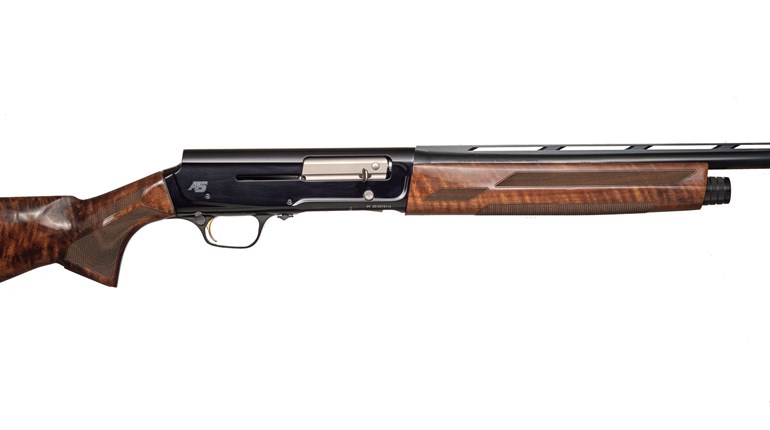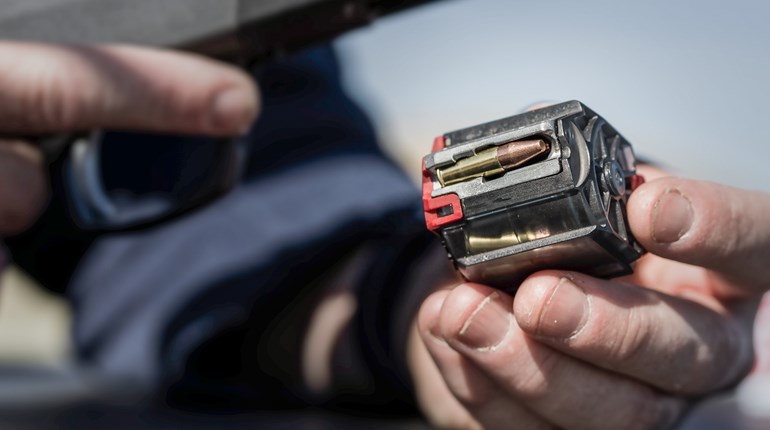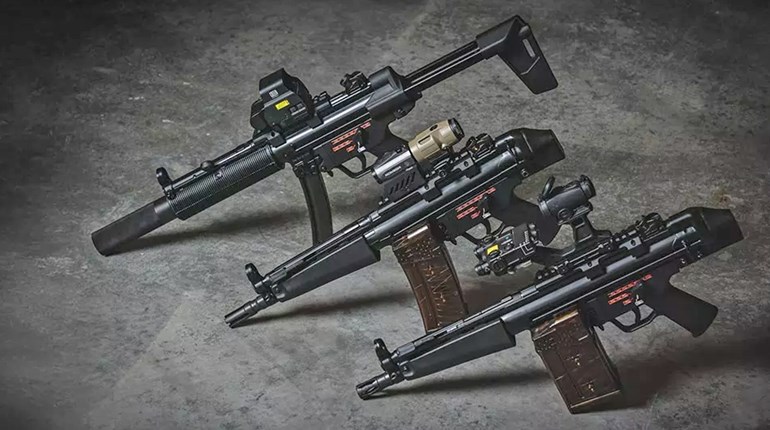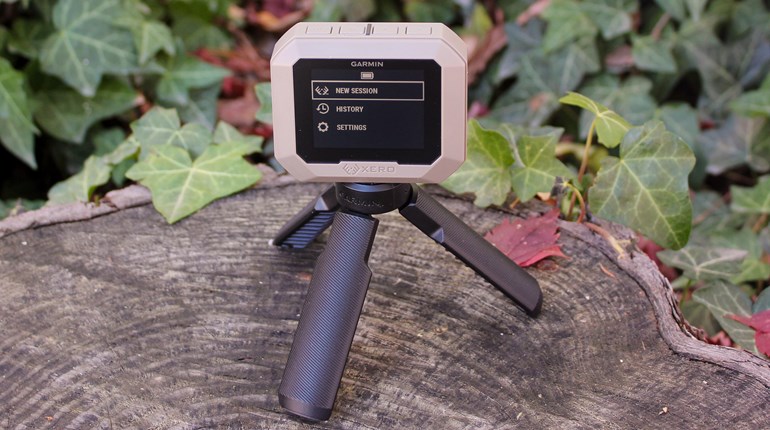
Thinking you’ll come out on the winning end of a home invasion just because you keep a shotgun by your bed is wishful at best. When the adrenaline surges, you’ll revert back to your training, and if you haven’t had much training, you can easily revert back to the way it was before you were born. Point is, you should practice shooting, reloading and moving with your shotgun, all while under pressure, until those skills become routine. Here are three drills to help you survive an attack.
You’ll need your home-defense shotgun, a couple boxes of shells (birdshot will suffice, but it’s always best to practice with the loads you intend to actually use, if possible), a large cardboard box or other portable barrier, and a shot timer. (If you don’t have a dedicated shot timer, there are a number of apps that will work, such as the IPSC Shot Timer app, on your smartphone.)
Note: While all of the following drills are intended for those who are already proficient at mounting and shooting a shotgun, drill Number 1, “The Pointing Drill,” is intended for those who intend to become masters of the shotgun. If you have no illusions of practicing until you master this arm, then skip to tip Number 2. That’s because pointing the shotgun rather than aiming can be detrimental, and result in a miss, if it’s not practiced until it becomes second nature.
1. Standing 5 yards from a silhouette target, load one round in the shotgun’s chamber. From a high-ready position, and while keeping both eyes open, look at where you intend to hit the target—center mass. Start the shot timer. On its beep, and at about half-speed, smoothly punch the shotgun’s barrel out and level it so that the gun’s comb comes up to your cheek. Do not lower your head and cheek to the gun, or shoulder it like a rifle. Without consciously looking at the shotgun’s bead, but rather the target, pull the trigger as soon as your cheek and shoulder make contact with the stock, your mount is solid and the shotgun’s bead intersects your line of sight to the target. When the trigger is pulled, keep the gun up, but look around to assess the situation. Check the target to make sure your pattern was center mass. (If not, it means you were either going too fast and pulled the trigger before your head was down on the stock, or the shotgun is not printing where you look. If the latter, seek advice on proper shotgun fit and consider adjusting its stock.)
Finally, check the timer, then make ready to repeat the drill. Try to beat your previous time. If you begin missing, slow down. After hundreds of rounds over multiple training sessions, your mind and hands will learn to point the shotgun exactly where the eyes look, and you’ll become very fast and accurate, all the while increasing your situational awareness. Once point-shooting is mastered, shooting a shotgun becomes easy, and you can always revert back to aiming when necessary.
2. Shooting a shotgun while moving is one of the toughest things to do, because most of us seldom do it, and because shotguns really kick. But moving, sometimes as much so as shooting, is often a key to surviving a gunfight. For this drill, set up a barrier (a refrigerator box works great) 10 yards from a target. Starting 10 feet behind the barrier, start the timer. On the beep, shoot the target as you walk forward to the edge of cover behind the box. (Remember not to get so close to the barrier that your barrel sticks past it.)
When you reach cover, shoot twice more without pausing. Then, from a high-ready crouch, walk backward from where you came, keeping cover between you and the target, while reloading your magazine with your weak hand. (Remember to pick your feet up and not slide them to minimize your chance of tripping.)
Check the timer. Repeat the drill, and try to get faster each time. Eventually, you’ll be able to shoot on the run and reload on the retreat.
3. There are many techniques to reloading a shotgun, but all of them take quite a bit of practice to master. For the “move and groove drill,” load spare shells in a bandolier, sidesaddle or the back pocket of your weak side if that’s all you have. Then ask a friend to load your gun’s magazine with any number of shells without you knowing. Keep the chamber unloaded. When you get the gun back, rack the slide to chamber a round. (If you don’t have an assistant, load the gun yourself.) Facing two targets 7 yards away, shoot one and then the other center mass, back and forth, until the gun goes dry.
When you realize the gun is empty, take a step toward cover while lowering the gun to low ready with your strong hand and reaching for a shell with the other. Load a single shell in the open port by going over or under the receiver with your support hand— whatever you prefer—so long as you quickly shove a shell in and rack the action forward as you step from cover to shoot the next target. (If your shotgun is semi-automatic, practice punching the bolt-release button with the support hand while on its way to the fore-end.)
After the next shot, repeat the single shell-reloading process as fast as possible. Then repeat the drill. Notice your split times on the timer and try to make them faster with each repetition. There are a lot of things going on here, so start out deliberately slow, and build speed with practice.
When you master shooting, moving and reloading your bedside shotgun, surviving a home invasion will become more than just a pipe dream. In addition to providing confidence in your chosen defensive firearm, it will also become somewhat of a nightmare for any attacker who dares to breach your domain.




































